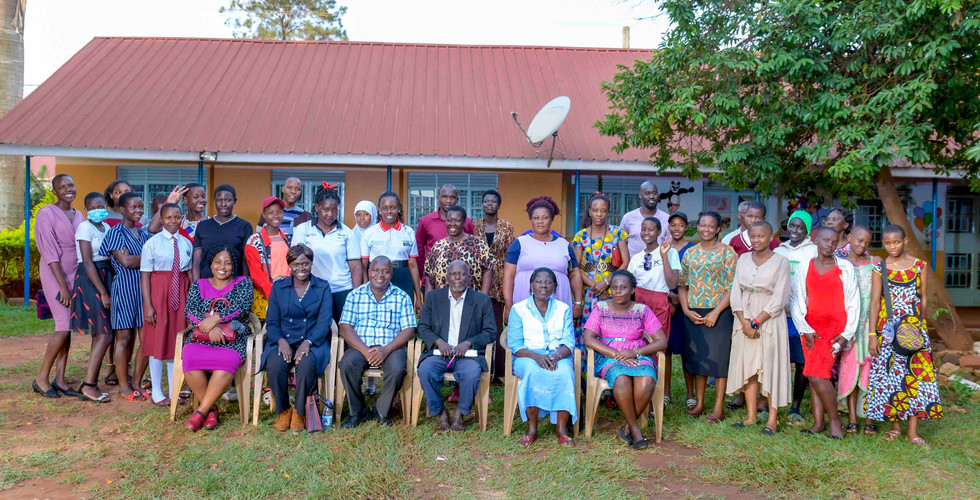Girls use creative action to push for gender equality in their communities

In December of 2022 girls in Creative Action Institute's Sauti ya Dada club at the PMM Secondary School in Jinja, Uganda noticed many of their friends and female classmates were dropping out of school in order to get married. In a country where 27% of girls drop out of high school, the club members were alarmed by the apparent lack of interest in adolescent girls' education they witnessed in their community.
Sauti ya Dada is a two-year program that creates and strengthens systems of support, learning, leadership, and advocacy both in and out of school to help marginalized girls in East Africa complete their secondary school education. The program focuses on eradicating barriers that hinder girls from finishing their schooling, such as poverty, climate change, gender inequality, sexual violence, teen pregnancy, and child marriage. 99% of girls involved in Sauti ya Dada clubs stay in school.
Through their Sauti ya Dada club meetings, the group of 23 girls decided to create a Creative Advocacy Practicum to raise awareness of the problem of early marriage within their school and community.

During the three-day Creative Advocacy Practicum, working with their group mentor and a local theater artist, the girls analyzed the causes that were contributing to high rates of early marriage in their community. In Uganda, 34% of girls are married before they turn 18. The group identified the following factors as key motivators behind early marriage in their community:
Some families view their daughters as a source of wealth through the paying of a bride price from the husband's family, and by marrying their daughters, they also relieve the financial burden on the family. They found this to be especially true with orphans and girls that were in the care of relatives, who were less invested in their well-being.
In very vulnerable families, some girls seek out marriage as a solution to cover their basic needs such as sanitary products and as a way to better their overall economic situation.
Arranged marriages are also common as a way to solidify relationships between families, as well as, to protect their daughters from early sexual encounters as a way to safeguard the family's honor
Teen pregnancy outside of marriage, whether consensual or forced, is also a driver of early marriage as parents see marriage as the only option in those situations
Girls' education is also often viewed as a waste of time and money for families and early marriage is often viewed as a better alternative to assure a girl's future security
After identifying and understanding the causes contributing to early marriage in their communities, the girls determined that it was important to educate parents and family members on the negative effects of early marriage and to advocate for change.

With the support of a local theater artist, the girls created theater skits and performances to address the various causes of early marriage and the negative effects it has on girls. The final performance was presented to over 70 parents, community members, and classmates to encourage them to invest in girls' education by ending the practice of early marriage. Through creative storytelling, a space was created for dialogue between the girls and adults in the audience. All the girls in the program made a commitment to finish school, wait to marry, and to focus on their careers. Many of the parents in the audience also made a commitment to support their daughters in their education without forcing them to marry.






























Comments